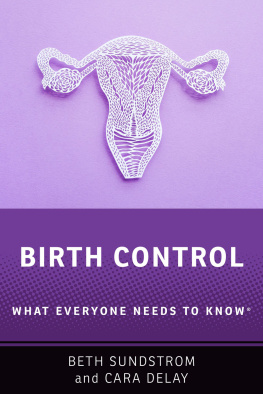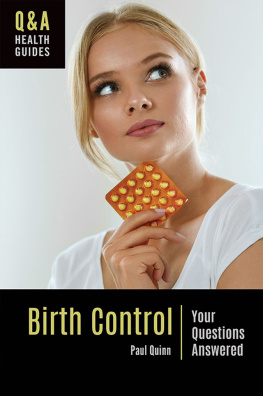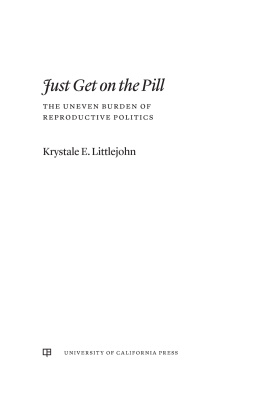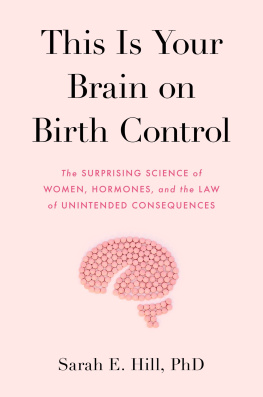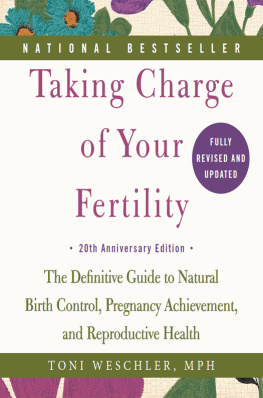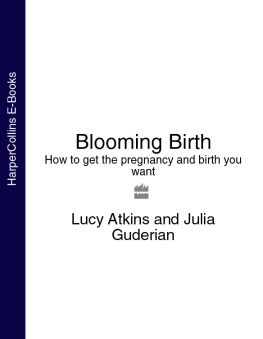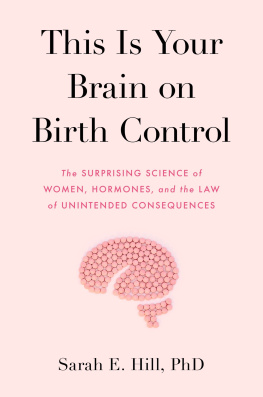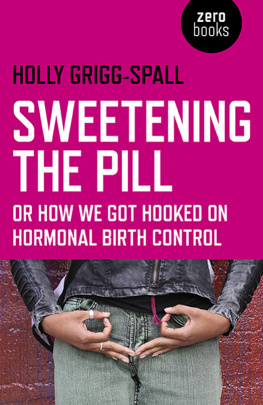BIRTH CONTROL
WHAT EVERYONE NEEDS TO KNOW

Oxford University Press is a department of the University of Oxford. It furthers the Universitys objective of excellence in research, scholarship, and education by publishing worldwide. Oxford is a registered trade mark of Oxford University Press in the UK and certain other countries.
What Everyone Needs to Know is a registered trademark of Oxford University Press
Published in the United States of America by Oxford University Press
198 Madison Avenue, New York, NY 10016, United States of America.
Oxford University Press 2020
All rights reserved. No part of this publication may be reproduced, stored in a retrieval system, or transmitted, in any form or by any means, without the prior permission in writing of Oxford University Press, or as expressly permitted by law, by license, or under terms agreed with the appropriate reproduction rights organization. Inquiries concerning reproduction outside the scope of the above should be sent to the Rights Department, Oxford University Press, at the address above.
You must not circulate this work in any other form and you must impose this same condition on any acquirer.
Library of Congress Cataloging-in-Publication Data
Names: Sundstrom, Beth, 1983 author. | Delay, Cara, 1971 author.
Title: Birth control : what everyone needs to know /
Beth Sundstrom and Cara Delay.
Description: New York, NY : Oxford University Press, 2020. |
Series: What everyone needs to know |
Includes bibliographical references and index.
Identifiers: LCCN 2019048256 (print) | LCCN 2019048257 (ebook) |
ISBN 9780190069667 (paperback) | ISBN 9780190069674 (hardback) |
ISBN 9780190069698 (epub)
Subjects: LCSH: Reproductive rightsUnited States. |
Birth controlUnited States.
Classification: LCC HQ766.5.U5 S87 2020 (print) |
LCC HQ766.5.U5 (ebook) | DDC 363.9/60973dc23
LC record available at https://lccn.loc.gov/2019048256
LC ebook record available at https://lccn.loc.gov/2019048257
The resources in this book are intended for use only as a tool to assist clinicians/school-based professionals and should not be used to replace clinical judgment or school-based policies and procedures. The information in this book is not provided as legal advice and/or professional advice on specific situations. While we have attempted to ensure the accuracy of information contained herein, we do not warrant that it is complete or accurate, and we are not legally responsible for errors or omissions.
For Millie and Byrdieand a generation growing up to expect bodily autonomy and unfettered access to science and technology without fear or judgment
Contents
Writing this book has been a labor of love and a collective effort in so many ways. First and foremost, we would like to thank our colleagues at the College of Charleston for their support. The School of Humanities and Social Sciences, the Womens and Gender Studies program, and, especially, the Womens Health Research Team (WHRT) have provided inspiration and encouragement throughout this process. Directing and mentoring faculty and students on the WHRT has provided a source of tireless enthusiasm for this work. We are most thankful for our collaborations with WHRT members, past and present, and particularly Nicole Russo, who helped us prepare this manuscript.
We are indebted to our community of scholars, womens health activists, and organizational partners in the United States and abroad who make our research not only possible but also rewarding. We thank our colleagues at the Medical University of South Carolina (MUSC), the University of South Carolina, Clemson University, Brown University, the Womens Rights and Empowerment Network (WREN), the South Carolina Coalition for Healthy Families, Power to Decide, and Ibis Reproductive Health, among others, for partnering with us and collaborating in this essential research on birth control. We are grateful for our Fulbright U.S. Scholar Research Grant Awards in Ireland for those transformative experiences and for the communities we were fortunate to join at University College Dublin and University College Cork.
The editorial team at Oxford University Press has been a joy to work with. Chad Zimmerman and Chloe Layman in particular have been supportive and enthusiastic at every step of this process. Working with you is an experience that we hope to repeat.
As we struggled to choose a cover image for this book, we were fortunate that Chad Zimmerman came across the amazing feminist artist Ali Harrison. We can think of no better image than Alis papercut uterus to adorn our book. Thank you, Ali.
We owe the success of our research to the women who participated in our interviews over nearly a decade. We are grateful for your generosity in sharing your time, experiences, and voices. Your stories and voices, which we hope we have done justice to here, are invaluable and need to be heard.
To our friends and families, especially Paris, Bryan, Millie, and Byrdie, we offer our thanks for their patience, encouragement, and generosity of spirit. Thank you for the time and space to write and thank you for listening.
Birth control is a timely topic. As we finish this book in 2019, contraception and family planning dominate news headlines across the United States. Legal challenges to the 2010 Affordable Care Acts contraceptive mandate continue; the Trump administration has revised decades-old Title X funding policies for contraceptive providers, and both Democratic and Republican legislators recently have come out in support of oral contraceptives over the counter. Meanwhile, a larger discussion of reproductive rights and womens bodily autonomy continues to divide Americans, increasingly on partisan lines. The time is right, then, for a new examination of birth control.
Healthy People 2020 offers national benchmarks to improve the health of women, infants, and families. By 2020, its family planning objectives aim to increase intended pregnancies to 56%, improve access and use of highly effective contraception, and increase birth spacing to 18 months. In this book we provide basic, scientific, and factual information about birth control that can be useful to all people. Birth Control: What Everyone Needs to Know is different from other books on birth control, however, in several noteworthy ways. First, it privileges the voices and experiences of ordinary women. Second, it offers a diverse, intersectional perspective grounded in reproductive justice. Third, it draws on our interdisciplinary expertise, placing current issues in a rich historical and cultural context.
Although reproduction and birth control are experienced primarily by women, accurate information that privileges womens experiences is still rare. Too often, academic researchers and medical practitioners create a divide between objective, fact-based, scientific knowledge and womens personal or subjective experiences. This split, however, can result in a lack of communication between women and experts and can even alienate women from essential information. Furthermore, neglecting personal narratives also perpetuates systems of power that continue to privilege the voices of a select few and devalue the essential experiences of ordinary women. The ways that power exists already in our societyin terms of gender, race, sexuality, and morecan affect what is considered valuable in terms of research, leaving behind those with less access to power.

